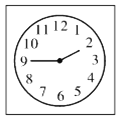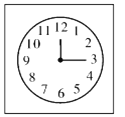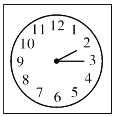题目内容

The environmental group Greenpeace reported that plastic and chemical pollution are often found in snow and seawater collected in Antarctica(南极). Greenpeace collected water and snow samples(样本)from Antarctica during a visit this year. Laboratory tests proved the effect of human on the Antarctic.
"It was about one microplastic piece at least per liter(升). It's worth worrying." said Greenpeace's Louisa Casson. Microplastics are extremely small parts of plastics. They come from the breakdown of bottles and other plastic waste in the world's oceans. In addition to microplastics, the Greenpeace study also proved that the presence of other chemicals and some harmful matter. These chemicals are widely used in industrial production and affect the birth and development of wildlife.
Plastic has been shown to harm wildlife. An example of this happened in southern Thailand. That was when a pilot whale died after eating up 80 pieces of plastic waste. Tests illustrated the waste weighed about eight kilograms.
International care about plastic pollution is rising. In India, Prime Minister Modi recently promised to ban all single-use plastic by 2022. In the city of Mumbai, Bollywood movie stars have been taking part in waste clean-up activities at Versova beach.
Plastic has been found in every corner of the world's oceans, from the bottom of the Pacific Mariana Trench to Antarctica. World governments decide on a European Union advice to create an Antarctic Ocean Protection Zone. At 1.8 million square kilometers, the area will be the largest protected one on the Earth.
1.Greenpeace collected water and snow samples showing_______________.
A.the currents never play a role of protection
B.human has an effect on the Antarctic
C.more people have come to the Antarctic
D.microplastic pieces were newly found
2.Microplastics can come from _______________according to the passage.
A.waste paper B.ring-pull cans C.plastic bags D.one-off chopsticks
3.What does the underlined word “illustrated” in Paragraph 3 probably mean in Chinese?
A.表明 B.讲述 C.想象 D.推测
4.To deal with the ocean pollution,world governments decide to_______________.
A.reduce the production of plastics
B.tell people to pick up the waste on beaches
C.tell people to recycle plastics
D.build some ocean protection areas
5.What does the text mainly talk about?
A.The serious situation of plastic pollution.
B.The serious situation of pollution in oceans.
C.The serious situation of chemical pollution.
D.The methods of reducing water pollution.
 阅读快车系列答案
阅读快车系列答案


 B.
B. C.
C.